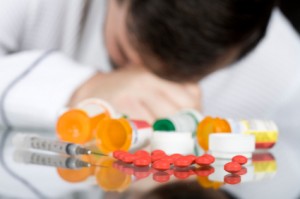The Effects Of Crack On The Body
Crack cocaine is one of the more well-known illicit drugs and is considered to be one of the most highly addictive drugs available. It has a long history and the documentation on crack cocaine’s effects on users is very in-depth.
Despite the availability of information on crack, many people overlook the serious consequences of the drug’s use and the effects it can have on the body. Call 800-605-6597 Who Answers? to get treatment for crack addiction and regain control of your life.
Immediate Effects of Crack Cocaine
According to the DEA, the effects of crack cocaine are very intense and can be felt through a “rush” that occurs within moments of use. Most of the effects come in the form of a mental euphoria, but this substance does tend to equally affect the body in tandem with the mind.
The immediate initial physical effects of crack occur within the heart. Blood pressure increases and heart rate goes up as a physiological response to the euphoria. The pupils dilate but will later return to normal as the high wears off.
Short-Term Effects of Crack

Coughing is a short-term effect of smoking crack.
Short-term effects of crack include a sudden increase in energy levels and distinguished changes in sexual arousal according to SAMHSA.
Additional short-term effects include a rise in body temperature, prominent headaches, abdominal pain and or nausea, and decreased appetite. These shorter-term effects are the result of the initial effects that the drug has on the heart and mind.
Crack and other forms of cocaine are often cut or mixed with other substances, which can affect the drug’s effect on the body and how long these effects last. Crack is commonly smoked, which can negatively impact the mouth, throat, and respiratory system on an interacting short- and long-term basis. Coughing, mouth dryness, difficulty swallowing, and hoarseness are common side effects that can develop shortly after a dose and then later fade.
Long-Term Effects of Crack
Crack’s physical, long-term effects can develop from its short-term and immediate effects with repeated and prolonged usage. The body’s cardiac and respiratory functions may become compromised as a result of the method in which the drug is being abused and the overall effect it has on the central nervous system.
Heart conditions and changes in the user’s normal heart function are common, long-term, effects that often cannot be reversed in treatment. Often times these physical consequences of the substance use must be managed for a lifetime even after recovery takes place.
Respiratory complications and respiratory failure are commonly attributed to crack use. In some cases, CESAR states, damage to a user’s reproductive organs have been documented from prolonged crack use. This damage commonly leads to infertility and sexual dysfunction.
Like any addictive drug, there is also the risk of overdose when crack cocaine is abused. Drug overdose can lead to even more serious long-term effects for the user if he or she survives the overdose at all. Further mental incapacities, such as delirium or paranoia, which occur as a result of the drug’s psychological effects can be considered indirect effects of the drug resulting in long-term repercussions.
If you or a loved one is struggling with addiction, please call 800-605-6597 Who Answers? to learn about what treatment options are available to help you. You’ll be able to speak with one of our caring specialists to learn more information about overcoming addiction.



